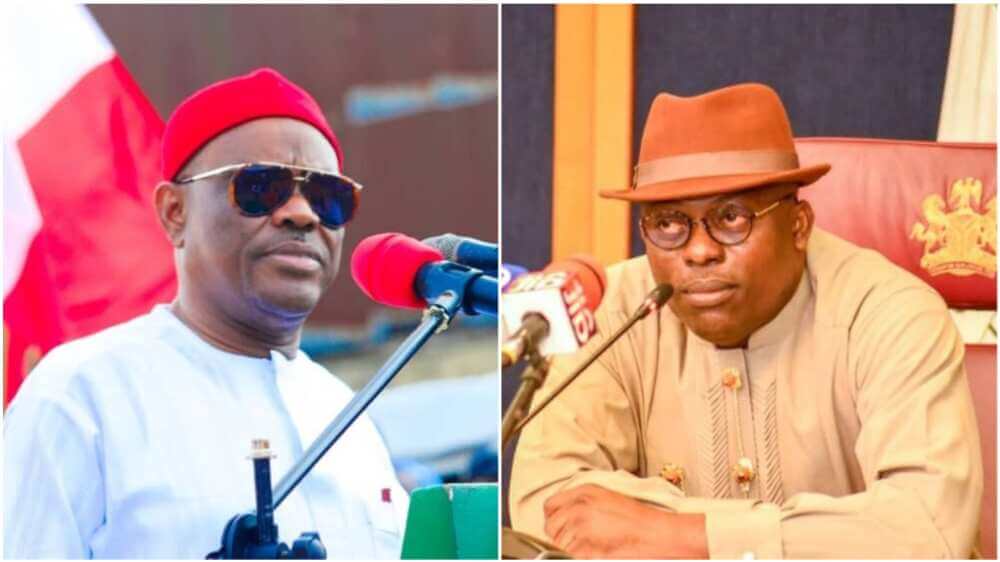Abuja, April 14, 2024 – The internal crisis within the Peoples Democratic Party (PDP) has reached a boiling point as state governors and party stalwarts engage in a bitter power struggle for control of the party’s machinery.
Caretaker Committee Controversy
The National Working Committee (NWC) of the PDP recently released a list of caretaker committees for various states, sparking outrage from several quarters. Governor Siminalayi Fubara of Rivers State has vehemently rejected the list, claiming it violates established conventions and undermines his authority as the party leader in his state.
Fubara alleges that the NWC bypassed the customary practice of consulting with governors before making such appointments. He insists that the caretaker committees should be extended for three months, as agreed upon during a recent meeting of party stakeholders, and that no changes should be made to the existing party structure.
Clash of Titans
The dispute between Fubara and the NWC highlights the simmering tensions between state governors and the party leadership. Governors, who wield significant influence in their states, traditionally wield substantial control over party structures. However, the NWC’s decision to appoint caretaker committees without consulting them has challenged this long-standing arrangement.
The conflict between Fubara and the NWC has also brought to the surface the rift between the governor and his estranged political godfather, former Rivers State Governor Nyesom Wike. Wike, now Minister of the Federal Capital Territory, has been accused of influencing the NWC’s decision-making process in order to undermine Fubara’s authority.

Historical Context
The PDP has a long history of internal wrangling, which has often led to defections and the formation of new political parties. The party’s dominance in the political landscape for 16 years was shattered in 2015 when five of its sitting governors defected to the All Progressives Congress (APC), resulting in the PDP’s loss of power at the federal level.
The current crisis is seen by many as a repeat of the internal struggles that plagued the PDP in the past. The battle for control of the party structure has become a proxy war between different power blocs within the party, each seeking to secure its interests ahead of the 2027 presidential election.
Power Play and Political Survival
Political analysts have pointed out that the struggle for control within the PDP is not only about ideological differences but also about political survival. Governors, who are often seen as potential presidential candidates, need to maintain their grip on their states in order to build a power base and secure their political futures.
The upcoming National Executive Committee (NEC) meeting of the PDP, slated for April 17 and 18, is expected to be a pivotal moment for the party. The meeting will provide an opportunity for stakeholders to address the underlying causes of the crisis and find a way forward that preserves the party’s unity.
The outcome of the NEC meeting will have significant implications for the PDP’s ability to remain a viable opposition party and challenge the dominance of the APC. The party’s ability to resolve its internal conflicts and present a united front will be crucial to its electoral fortunes in the years to come.



